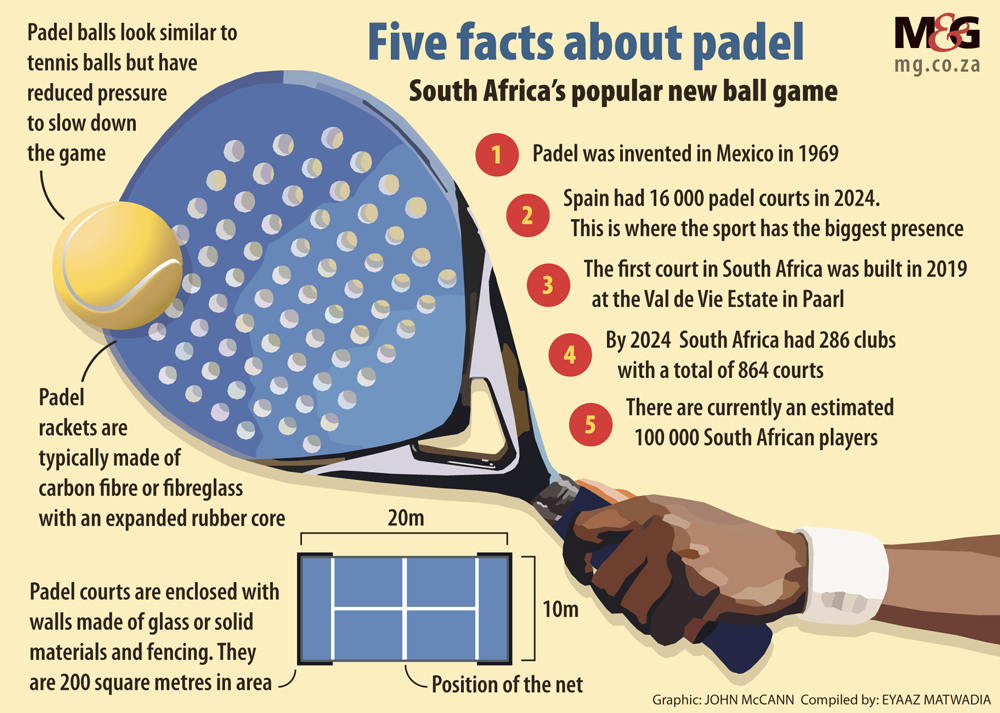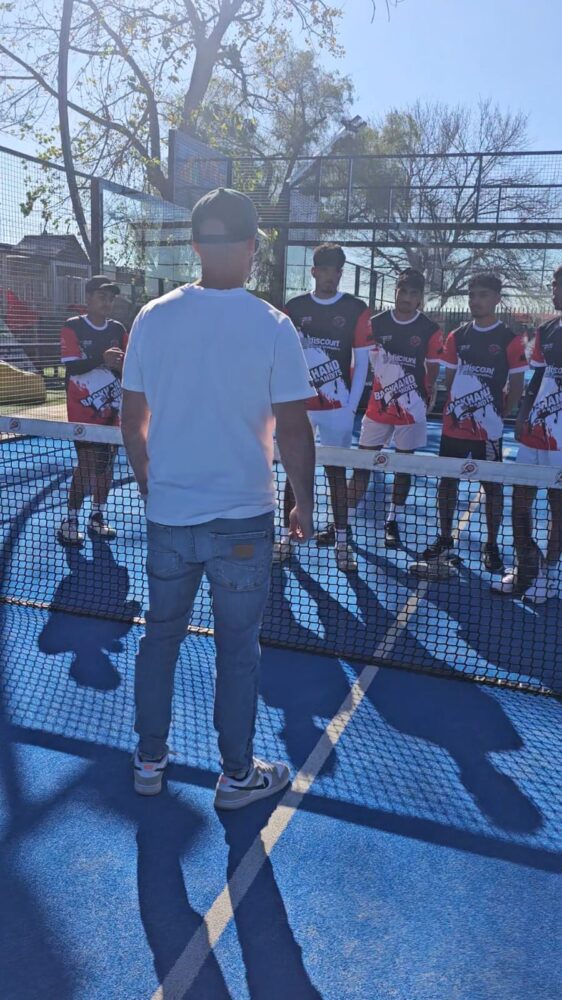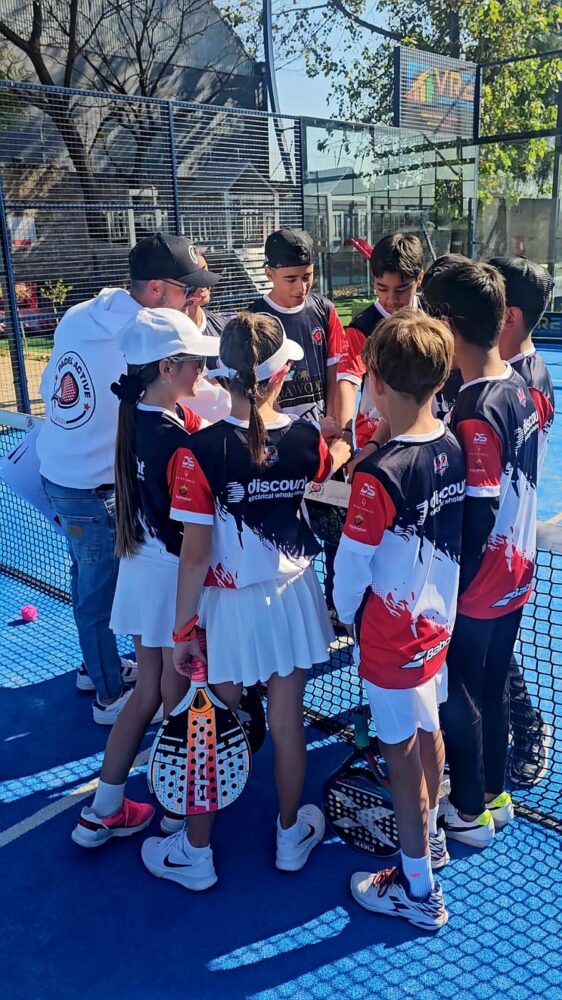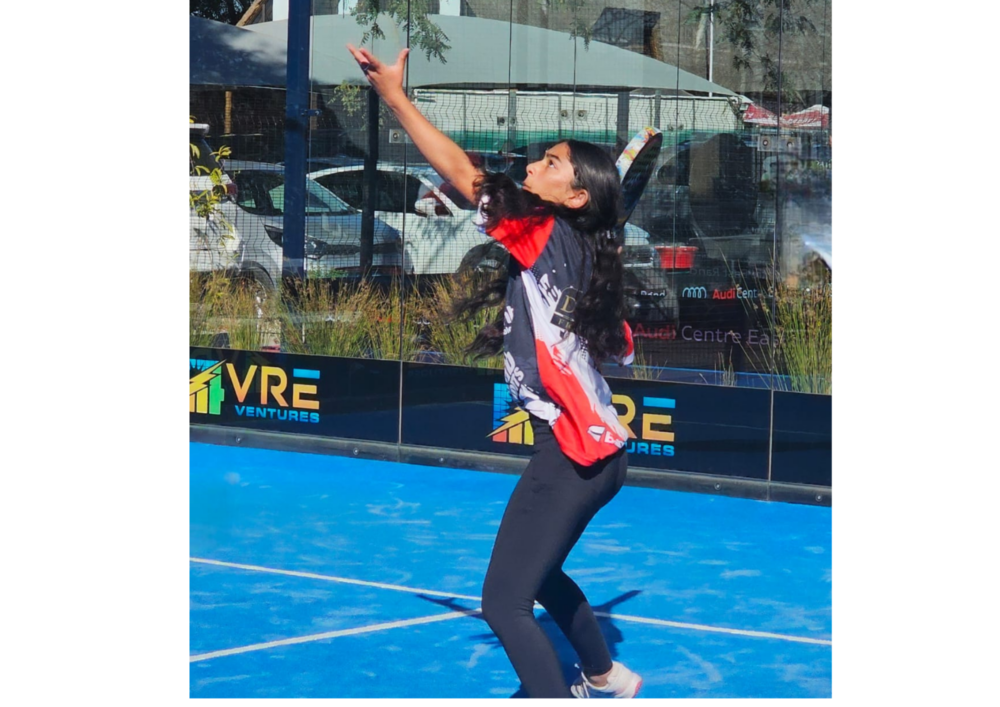Padel is the world’s fastest-growing sport and South Africa is certainly following the craze.
The sport, which has some similarities to tennis and squash, is still relatively new and small here compared with countries like Spain — known as the home of padel with more than 16 000 courts — as well as Italy and Sweden.
The country has come a long way since the first padel court was built in 2019 at Val de Vie Estate in Paarl. By December 2024, there were 286 venues and 864 courts in South Africa.
360 Padel South Africa is working to take the sport beyond being a social activity, hosting leagues and tournaments to bring together talent from across the country. The organisation even boasts a league, called the Diamond League, consisting of the finest players, some of whom are internationally ranked.
 (Graphic: John McCann/M&G)
(Graphic: John McCann/M&G)
The new 360 Padel Youth League brings together various clubs. This has allowed the International Padel Federation (FIP) to bring an inaugural youth tournament to South Africa, which included many of the youngsters in the 360 Padel Youth League.
One of the teams, the Backhand Bandits, now has five players ranked in the top 10 in South Africa in their respective age groups. The team plays out of Padel Active in Boksburg, the only club in Johannesburg’s East Rand to have registered a team in the 360 Youth League.
The club has a strong belief in developing the youth and giving back to the community that supports them, said head coach Marco de Oliveira.
“Prior to the league creation we were toying with a few ideas on a youth development programme. When I heard about this league, we thought it would be the perfect platform and opportunity to do this and to identify the kids we want to put into the programme,” he said.
“I felt like the kids on the East Rand are a bit behind from the other areas and it would be good exposure and a massive growth opportunity to be involved.”
De Oliveira believes tournaments and leagues such as the FIP Promises and 360 Youth League are important for the development of young padel players.
“There are a lot of youngsters that don’t play competitively and don’t get that exposure to be able to grow their game properly. They always seem to play with their friends, which is fine, but they will stagnate without more competitive play.”
Abdur-Rahman Seedat, another coach at Padel Active, said these tournaments and leagues also serve as motivation for youngsters.
“In Benoni , the youth presence on the courts was very minimal until the development of the 360 Youth League. But now we can see a lot of youngsters playing, going for coaching just to become better so that they can fit the scene for the upcoming events,” he said.
Conditioning the young players physically and mentally has its problems because of schedules and focus levels, De Oliveira said.
“Initially, we advertised to host trials for the league teams and we only managed to get 14 or 15 youngsters per age category to attend trials. Thereafter, it was a challenge to find a suitable day and time for practice with a lot of our youngsters having many different school, extramural and religious activities,” he said.

 Head coach Marco de Oliveira gets the Backhand Bandits ready for a league match. Photo: Supplied
Head coach Marco de Oliveira gets the Backhand Bandits ready for a league match. Photo: Supplied
Raheemah Hansrod, who is ranked sixth in the under 16 girls category and seventh in the under 18 girls category in South Africa, says the coaching from De Oliveira and Seedat has helped her improve her game.
“I took a while to adjust myself to the way my game play needs to change and improve but eventually I got used to it and in the coaching sessions and games, I try my best to implement all these tips to better my games. The training with coach Marco and coach Durri [Seedat] has helped me with my physical technique and game play,” she said.
“However, I would like to give credit to my parents for mentally preparing me for all my league games and tournaments as their advice and strategies is what gets me through my games, especially since I tend to lose my head when I’m in the game.”
Raheemah’s sister, Azeezah, is ranked fifth in the under 16 category for girls in South Africa. She also appreciates the physical aspects that coaching has helped her with, although she considers the mental aspect a huge part of her development.
“Physically, we’ve worked on footwork, strength and speed, like being ready for every shot and lasting long matches,” Azeezah said.
“But mentally, it’s been just as important. To stay positive, believe in myself and to learn from mistakes instead of getting upset. Mental prep before games plays a huge part, and I’ve noticed that it really helps me compose myself to make sure that I play well.”
Both Raheemah and Azeezah say the first game of the 360 Youth League was nerve-racking, but has helped them prepare for big tournaments like the FIP Youth Promises tournament and the South African Grand Open Juniors tournament.
Playing together in the Grand Open Juniors, the pair reached the semi-final.
 Lining it up: Raheemah Hansrod during a 360 Youth League Padel match at Padel Active in Boksburg. Photo: Supplied
Lining it up: Raheemah Hansrod during a 360 Youth League Padel match at Padel Active in Boksburg. Photo: Supplied
“As the only girl and the youngest player on the U18 backhand bandits team, I was extremely nervous going into my first game,” Raheemah said.
“The first league game definitely prepared me for the other tournaments we took part in, as, of course, playing against boys in the same age group is generally much more difficult in comparison to playing against other girls. The league has boosted my confidence quite a bit and that impacted my games in the other tournaments.”
Azeezah chimed in: “Going into the first game in the 360 league was definitely stressful and nerve-racking. It was the first time I’d be playing competitively against other people in my age group, which was really difficult and out of my comfort zone. However, it taught me how to overcome my anxiety going into other games.
“The 360 league was a great start to prepare me for the other tournaments, giving me a basic idea of what I should expect and the level we would be competing against. The FIP has given me the opportunity to get ranked internationally, which is really motivating and encouraging to improve my game, as well as the SA grand juniors that opened me up to the under 18 girls, giving me a chance to see how far I’ve come and how much further I want to go.”
Both girls believe the current generation of juniors have the ability to compete on the international stage in years to come.
Despite the difficult situations the club initially faced, De Oliveira and Seedat are convinced the youngsters are the future and need to be nurtured.
“Obviously we are thrilled that some of the youngsters are thriving but that’s due to their dedication, hard work and effort. As a club we are just happy that they are seizing the opportunity and not wasting it,” De Oliveira said.
“As a padel coach I love to help people achieve their maximum potential. This league has been very beneficial for my experience. It has been amazing to have been able to be a part of the development of these youngsters.
“Having travelled to Spain to train as a coach and a player, I have seen that group and team training is a lot more beneficial to match play preparation than individual one-on-one sessions, which in contrast helps develop technique.
“The team trains in groups so it has been nice to be able to put that into practice.”
Seedat weighed in: “As a coach, I couldn’t be more happier with the love these kids have for the sport and training them is such a blessing considering how much effort they always put in. Their dedication and commitment will only result in success.
“Initially, our youngsters were just there for the love of this new game but, over time, we can see their newly developed hunger and desire to develop and bring home the trophies.”
But even as the sport continues to grow in South Africa, the country still has a lot more to do in terms of its development.
“There are many people still coming into the sport that haven’t played before. The more clubs get built, the more exposure padel gets and thus, in turn, more players will enter the sport. The schools have not taken to it yet either and I believe they will soon,” said De Oliveira.
“We need to also focus on keeping the adults interested too. We find that many players start off by playing very socially with their families, friends and partners, but then many of them develop their games quickly and then get bored. We need to create more competitive options for them in order to keep them interested so they continue to try to develop their skills and stay in the sport.”
Seedat believes the sport will continue to grow as long as both the social and competitive aspects are promoted, as well as a mix between the two.
“The social element introduces the sport to many new players which is good for the overall growth of the sport, the competitive element promotes development in the sport, which drives people to become better, and then the mix between getting casual/beginner players to become competitive ultimately helps boosts the longevity of this sports growth in the years to come,” he said.
Popular: Youngsters in Joburg’s East Rand are developing skills by playing in leagues and tournaments. Photo: Supplied